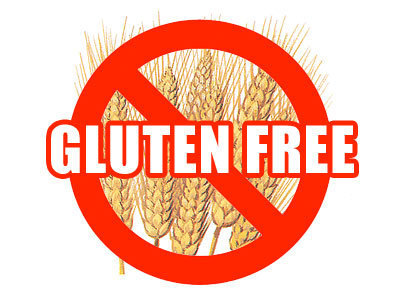FDA announces regulations to enforce label meaning but are consumers really being protected?
By L.J. Devon
An increasing number of people in the world today are becoming intolerant to gluten, which is a specific protein found in wheat, rye and barley. Sensitivity to the gluten protein now affects roughly 18 million Americans. This growing problem has given rise to an ever-expanding industry of "gluten-free" products. In recent years, the "gluten-free" label has become an advertising ploy, backed by little accountability. Now, the FDA is getting involved, announcing new regulations to enforce the meaning of the "gluten-free" label.

One of the first regulations enacted a year ago requires anything labeled "gluten-free" to contain less than 20 parts per million of gluten. This limit on gluten ensures that those with gluten sensitivities won't get sick if they eat the product. Furthermore, the FDA will deny a product the "gluten-free" label if the product is made in the same manufacturing facility as products that contain gluten. The FDA is trying to protect consumers from cross-contamination.
Leading gluten-free food companies like Glutino and Udi's have already complied with the gluten limits. The CEO of Boulder Brands, which owns the two aforementioned companies, Stephen Hughes, says the new FDA regulations set a great standard, putting a "stake in the ground" that can increase the integrity of the gluten-free market. "If consumers can't have confidence in the products long-term, it's going to hurt the overall trend," he said.

While the FDA and government safety standards are set to make "gluten-free" labels more transparent and honest, at the same time, this government safety is permitting obscene doses of antibiotics and pesticides to hit the market, destroying human gut microbes. The very products perpetuating celiac disease and the malabsorption of nutrients are considered "safe" and allowed to be pumped into the economy en masse.
If Americans and people around the world are looking for food safety, then it's time to take a closer look at the science of gut microbes and the very products like glyphosate that are destroying people's immune systems from the inside out.
Sources:
http://www.naturalnews.com/046510_gluten_free_celiac_disease_food_labeling.html?utm_content=buffer49c20&utm_medium=social&utm_source=facebook.com&utm_campaign=buffer#
http://www.foxnews.com
http://www.medicaldaily.com
http://responsibletechnology.org
http://science.naturalnews.com
By L.J. Devon
An increasing number of people in the world today are becoming intolerant to gluten, which is a specific protein found in wheat, rye and barley. Sensitivity to the gluten protein now affects roughly 18 million Americans. This growing problem has given rise to an ever-expanding industry of "gluten-free" products. In recent years, the "gluten-free" label has become an advertising ploy, backed by little accountability. Now, the FDA is getting involved, announcing new regulations to enforce the meaning of the "gluten-free" label.

One of the first regulations enacted a year ago requires anything labeled "gluten-free" to contain less than 20 parts per million of gluten. This limit on gluten ensures that those with gluten sensitivities won't get sick if they eat the product. Furthermore, the FDA will deny a product the "gluten-free" label if the product is made in the same manufacturing facility as products that contain gluten. The FDA is trying to protect consumers from cross-contamination.
Leading gluten-free food companies like Glutino and Udi's have already complied with the gluten limits. The CEO of Boulder Brands, which owns the two aforementioned companies, Stephen Hughes, says the new FDA regulations set a great standard, putting a "stake in the ground" that can increase the integrity of the gluten-free market. "If consumers can't have confidence in the products long-term, it's going to hurt the overall trend," he said.

FDA safety standards on gluten ignore the underlying causes of gluten sensitivity and the rise of celiac disease
It's important to note that people with celiac disease are really fighting a condition of not being able to absorb the necessary nutrients from food. This shows that anything that damages the beneficial flora in the human gut is to blame for celiac disease, whether it is glyphosate or prescription antibiotics.While the FDA and government safety standards are set to make "gluten-free" labels more transparent and honest, at the same time, this government safety is permitting obscene doses of antibiotics and pesticides to hit the market, destroying human gut microbes. The very products perpetuating celiac disease and the malabsorption of nutrients are considered "safe" and allowed to be pumped into the economy en masse.
If Americans and people around the world are looking for food safety, then it's time to take a closer look at the science of gut microbes and the very products like glyphosate that are destroying people's immune systems from the inside out.
Sources:
http://www.naturalnews.com/046510_gluten_free_celiac_disease_food_labeling.html?utm_content=buffer49c20&utm_medium=social&utm_source=facebook.com&utm_campaign=buffer#
http://www.foxnews.com
http://www.medicaldaily.com
http://responsibletechnology.org
http://science.naturalnews.com
No comments:
Post a Comment